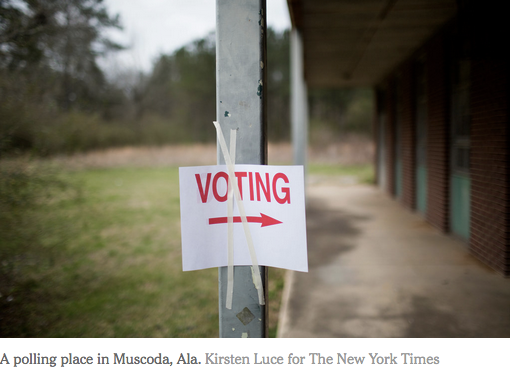At the state’s constitutional convention in 1901, lawmakers amended the Constitution to bar from voting anyone convicted of a crime involving “moral turpitude.” They didn’t define the phrase, but they were crystal clear about its intent: to preserve “white supremacy in this state” and fight the “menace of Negro domination” at the ballot box, as the convention’s president said.
Authorities took advantage of the term’s vagueness to apply it to offenses, even misdemeanors, that recently freed blacks were far more likely to be charged with. “The crime of wife-beating alone would disqualify 60 percent of the Negroes,” one lawmaker said at the time.
The Supreme Court struck down the provision as racially discriminatory in 1985, but lawmakers revived it by restricting it to felonies. Its definition remained in the hands of local voting registrars, meaning that people with convictions had no idea whether they were prohibited from voting; their eligibility often depended on what county they lived in. It has continued to fall heavily on blacks — nearly one in five of whom are disenfranchised statewide, more than triple the rate for whites. In all, about a quarter million Alabama residents, or 8 percent of the voting-age population, can’t vote because of a criminal conviction.
On May 24, Gov. Kay Ivey, a Republican, signed a bill that lists the several dozen crimes considered acts of “moral turpitude.” The list includes crimes like murder and rape, and — importantly — excludes low-level drug offenses like possession, by far the most common felony conviction in the state. The bill had bipartisan support, as similar measures have had around the country — an encouraging sign that people of all political stripes are beginning to see felon-disenfranchisement laws for the racist, pointless, anti-democratic shams they are.




